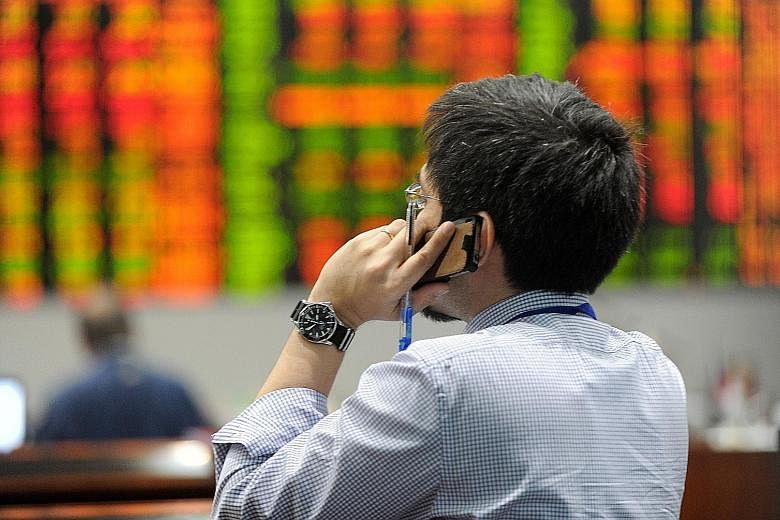After going after drug traffickers, Philippine President Rodrigo Duterte is now targeting the country's tycoons, with plans to break up monopolies and open up key sectors of the economy, such as telecommunications and energy, to foreign investors.
This is the "only way to make this country move faster to benefit the poor", he said at a news conference on Wednesday, after returning from a summit of Asia-Pacific Economic Cooperation leaders in Lima, Peru.
Mr Duterte, who swept to office in May on a platform tilted towards the poor, said smashing monopolies would cut prices and halt graft.
"The only way for the deliverance of this country is to remove it from the clutches of the few people who hold the power and money... It's about time that we shared the money of the entire country, and to move faster, make competition open to all," he said.
"You can count... in one hand the power players of this country."
The Philippines has 21 billionaires, according to Forbes Magazine, with a record number this year. The richest - retail and property mogul Henry Sy - has a net worth of US$13.7 billion (S$19.6 billion).
-
Steep prices, poor service
-
Some 13 million Filipinos living in metropolitan Manila get their electricity from one monopoly, the Manila Electric Company, and their water from another, Manila Water.
Across the nation of 100 million, two telcos - the Philippine Long Distance Telephone Company (PLDT) and Globe Telecom - split the US$6 billion (S$8.6 billion) wireless market, 57 per cent and 43 per cent respectively.
The result has been steep rates and bad service.
Manila's power prices, at an average 28 US cents per kilowatt hour, are the second-highest in Asia behind Tokyo's 30 US cents per kwh. Water bills, meanwhile, have grown sixfold since 1997.
The Philippines ranks 21st out of 22 Asian countries in terms of Internet speed. Yet Internet access is among the world's most expensive at US$18.19 per megabits, well above the global average of US$5.21.
These are the monopolies that President Rodrigo Duterte wants to break up, but it is easier said than done. Not even the combined muscle of San Miguel, one of the Philippines' biggest conglomerates, and Australia's largest telco, Telstra, could dislodge PLDT and Globe.
Mr Duterte is turning to China, but there have been security and bribery concerns in the past that have stymied the flow of Chinese investments.
Raul Dancel
Investors have long been frustrated at being shut out of some sectors in a market of more than 100 million Filipinos, either squeezed by local monopolies or regulations that limit foreign investments.
Mr Duterte said his government is finalising plans to open up the telecoms sector, now dominated by two companies: the Philippine Long Distance Telephone Company (PLDT) and Globe Telecom.
"I do not want to have a quarrel with the Ayalas and Pangilinan... If you dive your prices, we won't have a problem. I will forget my statement. Dive your charges," said Mr Duterte, referring to the Ayala family, Globe's majority owners, and PLDT chief Manuel Pangilinan.
A US$1 billion deal between the Philippines' San Miguel conglomerate and Australia's Telstra that would have created a third mobile operator collapsed in March.
In a report, ratings firm Fitch said PLDT and Globe had been reluctant to share their towers and infrastructure with San Miguel.
The two companies also lobbied to force San Miguel to share its most valuable spectrum asset - the 700MHz frequency band that allows next-generation, high-speed mobile communication access.
In June, San Miguel decided to sell its telco assets to PLDT and Globe for 70 billion pesos (S$2 billion).
Mr Duterte said the government is looking into "regulatory requirements and institutional arrangements to hasten the entry of new players in the power industry and energy sector".
Analysts say Mr Duterte's move to open up South-east Asia's fastest-rising economy will provide huge opportunities for new players from abroad, especially China's telecoms and infrastructure companies.
"They will come flooding in, China," Mr Duterte said on Wednesday.
The President has increasingly turned to China for a buffer, as American investors hold off expansion plans over his unceasing anti-American rants.
This is not the first time he has taken a stab at the nation's "oligarchs".
"If you do not do it right, you wait, I'm going to China. I'll open up everything for competition," he said last month, just before he left for a four-day state visit to Beijing.

